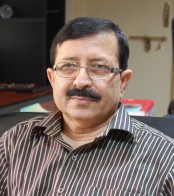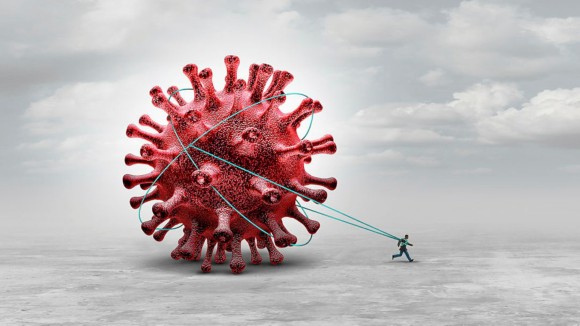 Nicolas G. Bazan is Founding Director of the Neuroscience Center of Excellence at LSU Health New Orleans. His team uncovered lipid mediators that reduce the ability of the SARS-CoV-2 Spike (S) protein to bind to receptors and enter human lung cells. He is defining new signaling and neuroprotective mechanisms in Long COVID. Dr. Bazan has been an Editorial Board Member for Scientific Reports since 2022.
Nicolas G. Bazan is Founding Director of the Neuroscience Center of Excellence at LSU Health New Orleans. His team uncovered lipid mediators that reduce the ability of the SARS-CoV-2 Spike (S) protein to bind to receptors and enter human lung cells. He is defining new signaling and neuroprotective mechanisms in Long COVID. Dr. Bazan has been an Editorial Board Member for Scientific Reports since 2022.
 Artur Fedorowski is a Senior Consultant at Karolinska University Hospital and an Associate Professor at the Karolinska Institute. His research areas include: syncope, orthostatic hypotension, cardiac arrhythmias, cardiovascular autonomic dysfunction, hypertension, biomarkers and cardiovascular diseases. Dr. Fedorowski has been an Editorial Board Member for Scientific Reports since 2022.
Artur Fedorowski is a Senior Consultant at Karolinska University Hospital and an Associate Professor at the Karolinska Institute. His research areas include: syncope, orthostatic hypotension, cardiac arrhythmias, cardiovascular autonomic dysfunction, hypertension, biomarkers and cardiovascular diseases. Dr. Fedorowski has been an Editorial Board Member for Scientific Reports since 2022.
 Seyed Hasnain is a National Science Chair at Indian Institute of Technology and Distinguished Professor at Sharda University. His research focuses on infection biology and functional molecular epidemiology of infectious pathogens such as Mycobacterium tuberculosis. He has also been involved in understanding the molecular evolution of SARS-CoV-2. Professor Hasnain has been an Editorial Board Member for Scientific Reports since 2019.
Seyed Hasnain is a National Science Chair at Indian Institute of Technology and Distinguished Professor at Sharda University. His research focuses on infection biology and functional molecular epidemiology of infectious pathogens such as Mycobacterium tuberculosis. He has also been involved in understanding the molecular evolution of SARS-CoV-2. Professor Hasnain has been an Editorial Board Member for Scientific Reports since 2019.
 Roxana Moslehi is an Associate Professor and Genetic Epidemiologist in the School of Public Health at University at Albany, State University of New York. Her research aims to identify genetic and environmental determinants of complex disorders. One of her current projects involves research on myalgic encephalomyelitis/chronic fatigue syndrome (ME/CFS) to better understand the illness, including its molecular epidemiologic link to cancer, auto-immune disease, and long-haul COVID-19. Dr. Moslehi has been an Editorial Board Member for Scientific Reports since 2022.
Roxana Moslehi is an Associate Professor and Genetic Epidemiologist in the School of Public Health at University at Albany, State University of New York. Her research aims to identify genetic and environmental determinants of complex disorders. One of her current projects involves research on myalgic encephalomyelitis/chronic fatigue syndrome (ME/CFS) to better understand the illness, including its molecular epidemiologic link to cancer, auto-immune disease, and long-haul COVID-19. Dr. Moslehi has been an Editorial Board Member for Scientific Reports since 2022.
 Annette Regan is an Assistant Professor in the School of Nursing and Health Professions at University of San Francisco. As an infectious disease epidemiologist, her research focuses on the use of real-world data to document the burden of respiratory virus infections and the health effects of vaccine programs. Dr. Regan has been an Editorial Board Member for Scientific Reports since 2022.
Annette Regan is an Assistant Professor in the School of Nursing and Health Professions at University of San Francisco. As an infectious disease epidemiologist, her research focuses on the use of real-world data to document the burden of respiratory virus infections and the health effects of vaccine programs. Dr. Regan has been an Editorial Board Member for Scientific Reports since 2022.

